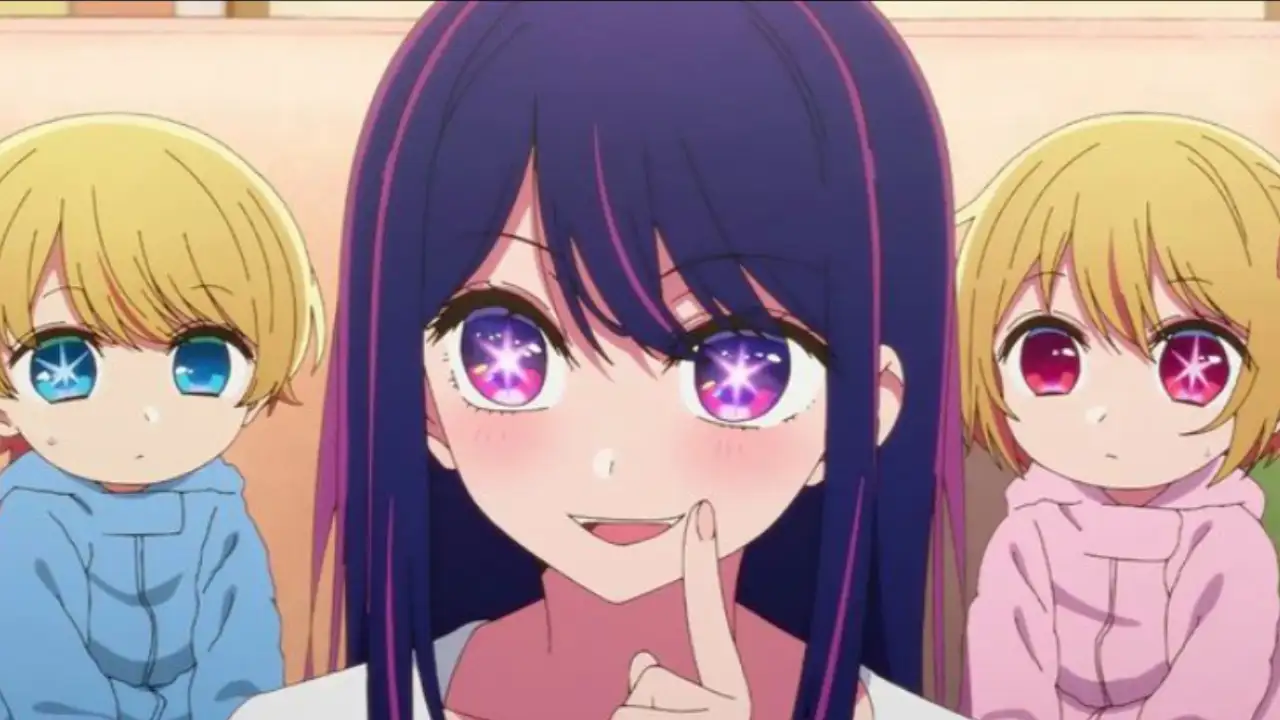Featured Post
Oshi no Ko: The Phenomenon of "Oshi" Culture in Japan
- Get link
- X
- Other Apps
Introduction:
In recent years, a new cultural phenomenon has taken the Japanese entertainment industry by storm: "Oshi no Ko." The term "Oshi no Ko" refers to the act of being a dedicated fan of an idol, celebrity, or fictional character. This fervent admiration goes beyond traditional fandom, as "Oshi no Ko" fans engage in a wide range of activities to support and connect with their beloved personalities. One of the notable examples of this trend is the multimedia franchise called "Oshi no Ko." This article explores the concept of "Oshi no Ko" and delves into the cultural and social impact it has had on Japan.
Origins of "Oshi no Ko":
The roots of "Oshi no Ko" culture can be traced back to the idol industry in Japan, which has a long history of dedicated fans supporting their favorite idols. However, the rise of social media platforms and online communities has accelerated the growth and intensity of this fan culture. With the ability to connect and interact with idols directly through digital platforms, fans have found new ways to express their devotion.
Understanding the "Oshi" Phenomenon:
The term "oshi" refers to the fan's favorite idol or character. The word itself translates to "push" or "support," signifying the fan's desire to propel their chosen idol to success. Fans form deep emotional connections with their "oshi," often going to great lengths to attend live events, purchase merchandise, and engage in fan-created content. The "oshi" becomes a central figure in the fan's life, providing a sense of belonging and purpose.
The Impact of "Oshi no Ko" Culture:
a. Economy: "Oshi no Ko" culture has become a lucrative market, with idol groups and entertainment agencies capitalizing on the intense devotion of fans. Concert tickets, merchandise sales, and fan events generate significant revenue, driving the economy of the entertainment industry.
c. Empowerment and Identity: "Oshi no Ko" culture provides a sense of empowerment and identity for fans. By supporting their idols, fans feel a sense of purpose and belonging within a community of like-minded individuals. It allows them to express their creativity through fan art, fanfiction, and other fan-generated content.
Criticisms and Challenges:
a. Obsession and Stalking: The intense dedication of "Oshi no Ko" fans has raised concerns about obsessive behavior and potential stalking incidents. Some fans may cross boundaries in their pursuit of idol worship, intruding on the personal lives of their idols or engaging in harassment.
b. Mental Health: The pressure to live up to fan expectations can take a toll on idols' mental health. Similarly, fans may experience emotional distress when their "oshi" faces setbacks or leaves the industry. It is essential to promote a healthy balance between fandom and personal well-being.
Oshi no Ko Franchise: Case Study:
a. Background and Concept: The "Oshi no Ko" multimedia franchise emerged as a prominent example of the culture it represents. The franchise combines various media formats, including manga, anime, music, and live performances, to create a cohesive universe centered around the concept of "oshi" fandom.
b. Fan Engagement and Participation: The success of the "Oshi no Ko" franchise lies in its ability to continuously engage and involve fans. The franchise encourages fan participation through interactive events, fan contests, and opportunities for fans to showcase their talents and creativity. This level of engagement deepens the connection between fans and the fictional characters, fostering a sense of ownership and investment in the franchise.
c. Transmedia Storytelling: The "Oshi no Ko" franchise employs transmedia storytelling techniques, expanding the narrative beyond a single medium. Fans can immerse themselves in the world of the franchise through manga, anime episodes, music releases, live performances, and even virtual reality experiences. This multi-dimensional approach enhances the fan experience and allows for a more comprehensive exploration of the characters and their stories.
d. Merchandising and Revenue Generation: The "Oshi no Ko" franchise utilizes a wide range of merchandise, including character goods, albums, DVDs, and limited edition collectibles. Fans eagerly collect these items, further supporting the franchise financially. Additionally, collaborations with brands and tie-ins with other media properties contribute to the franchise's revenue stream.
Global Influence and Future Outlook:
While "Oshi no Ko" culture originated in Japan, its influence has transcended borders. International fans have embraced the concept, forming their own communities and engaging with Japanese idols and characters through online platforms and fan events. As the globalization of media continues, it is likely that "Oshi no Ko" culture will further expand its reach and impact.
Looking ahead, the future of "Oshi no Ko" culture holds both opportunities and challenges. Striking a balance between fan dedication and healthy boundaries will be crucial in maintaining a positive and respectful fandom. Entertainment agencies and industry stakeholders must prioritize the well-being of idols and fans alike while harnessing the potential of "Oshi no Ko" culture to drive innovation and revenue.
Conclusion:
The rise of "Oshi no Ko" culture in Japan reflects the deep-rooted passion and dedication of fans towards their idols and fictional characters. This unique phenomenon has transformed the entertainment industry, generating economic opportunities and fostering vibrant fan communities. However, it also poses challenges, such as maintaining boundaries and supporting the mental health of both idols and fans. As the "Oshi no Ko" culture continues to evolve, its impact will undoubtedly shape the future of fandom and fan-idol relationships, both in Japan and globally.
- Get link
- X
- Other Apps





Comments
Post a Comment